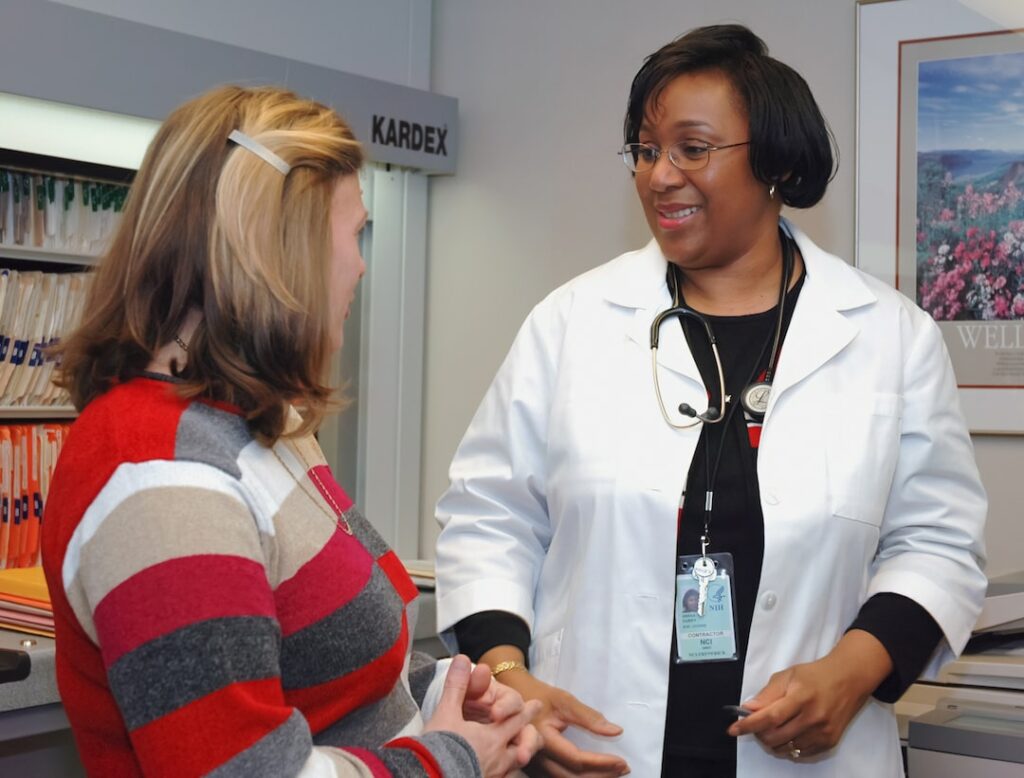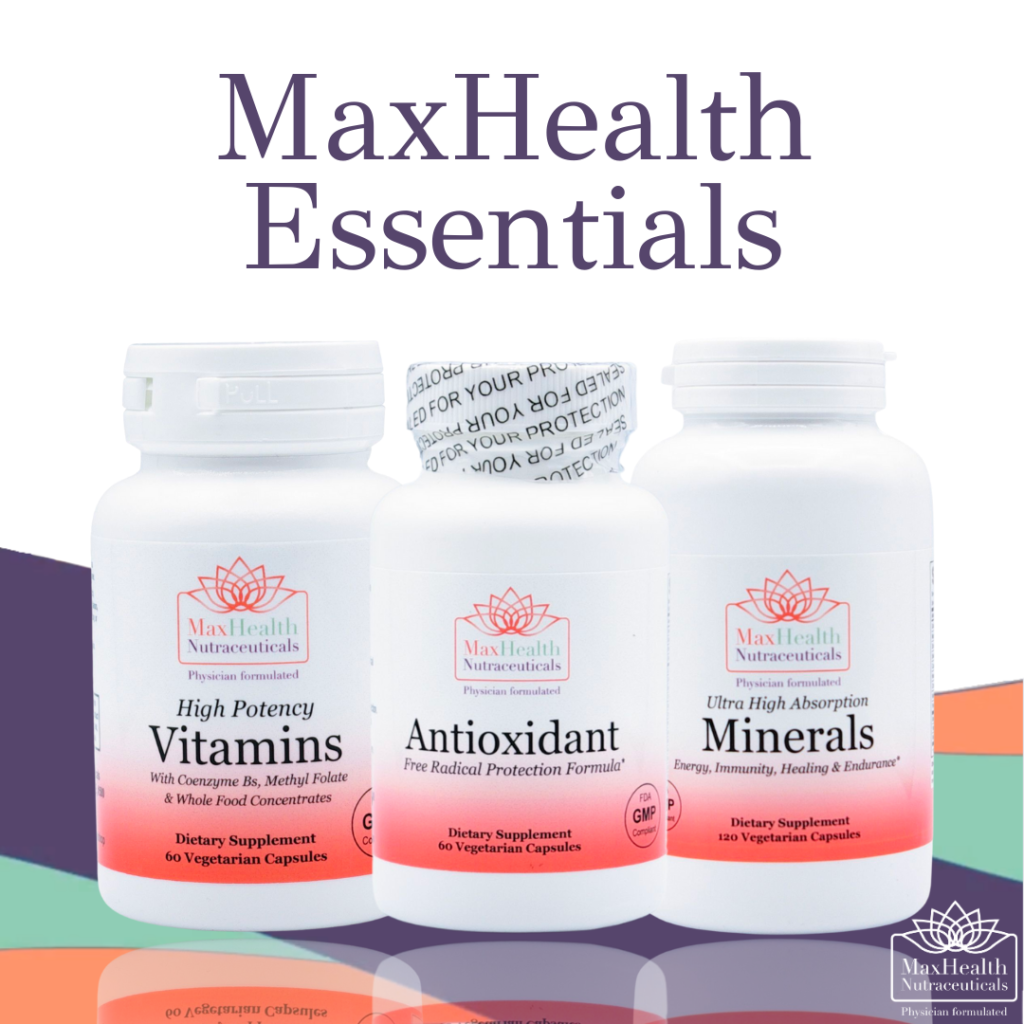

Sarah said to her friend Jessica over coffee, “I don’t understand why I’m not feeling better. For months now, I’ve been going to the doctor, and he’s prescribed me medication after medication, but nothing’s helped.”
When Sarah poured out her heart, Jessica listened sympathetically. Jessica advised, “You might want to think about getting a second opinion. It’s amazing what a new perspective can do sometimes.”
Sarah hesitated for a moment, thinking about it. “I’m not sure. My physician is the supposed to be the authority on this. I’m afraid he’ll take it personally if I don’t put my faith in his judgment.”
Jessica comforted her, “Doctors are used to patients seeking second opinions. It’s not a matter of not trusting your doctor; rather, it’s about being well-informed so that you may receive the greatest treatment for your health.”
Now that she had gained some assurance, Sarah set out to learn more about second medical opinions. Dr. Nicolle’s blog article on the subject piqued her interest, and she happened onto it by chance. It was explained in the post why and how to get a second opinion.
Sarah read on, eager to find out more, and discovered helpful details on what to anticipate from a second opinion visit, how to get ready for it, and what questions to ask. She also gained knowledge about the possibility of receiving a more precise diagnosis and learning about alternative treatments.
Sarah, now full of confidence, went to see the doctor her friend had suggested. The expert gave her new insight into her health and suggested a treatment plan that would be more efficient and less taxing on her body than what her PCP had suggested.
Sarah thanked Jessica over the phone for her recommendation that she seek a second opinion, “That was the deciding factor. I feel like I’m making progress toward recovery.”
On the other end of the call, Jessica cracked a happy smile. “It makes my heart happy. Don’t be afraid to get a second opinion; in fact, you should. Your wellbeing is priceless.”
Continue reading below…

Introduction
If you are someone who has been diagnosed with a medical condition, it is essential to understand the various treatment options available to you. In some cases, getting a medical second opinion can help you get better treatment and save money. Even though additional consultations are beneficial, you may feel uncomfortable or unfamiliar with the process. A recent study reported that 70% of Americans do not feel compelled to get a second opinion.
Today we’ll talk about the benefits of seeking a second opinion, researching your options, and give you tips on how to prepare for your appointments.
We’ll even give you tips on when to seek a second medical opinion from a Functional Medicine Practitioner.
We hope this knowledge will help you gain a sense of power and motivate you to collaborate with medical professionals in managing your well-being.

Minimize Medications. Maximize Health.
Are you super busy but need to take control of your health? Are you tired of being tired? Subscribe to my “Minimize Medications, Maximize Health Blog” and I’ll give you 7 Tips to Get Healthy in No Time absolutely FREE.
You have Successfully Subscribed!
Understand the Benefits of a Medical Second Opinion
Getting a second medical opinion can be invaluable when making decisions regarding one’s health. Whether you’re trying to decide on the best treatment plan for a new diagnosis or want an independent assessment of a recommended course of action, seeking out an additional opinion is often worth the effort. A second opinion provides more insight into available options and potential outcomes so that you can make informed choices with confidence.
A medical second opinion offers several key benefits:
1) You get access to multiple treatment options – With one doctor’s advice, you may not be aware of all the available treatments for your condition. By getting another perspective from another specialist in the field, you may discover other viable options that could work better for your particular situation.
2) You receive clarity on complex conditions – Complex conditions like heart disease require careful consideration when deciding on a course of action as there are often multiple approaches that could provide successful results. Having a specialist’s input on intricate medical matters can provide assurance when determining your health-related choices.

By getting a second opinion, you can access multiple treatment options, gain clarity on complex conditions, and save money. Gaining another professional’s input may uncover alternative treatments that could be more suitable for your particular requirements.
Additionally, if there is disagreement between doctors regarding which path should be taken with regards to treatment plans or tests being ordered then having both opinions considered together can help avert any costly errors due to miscommunication beforehand. In other words, by taking the time to compare and contrast each opinion prior to implementation will ultimately lead towards avoiding such mistakes later down the line as opposed to making them now during these present circumstances at hand.
Gaining an extra viewpoint on a medical diagnosis and its potential treatments can be of inestimable value. Realizing when to acquire a supplementary opinion is equally as crucial; being aware of your own health requirements can assist you in taking the most advantageous decision.
Know When to Seek a Second Opinion
It is important to consider getting a second opinion if you have been diagnosed with a complex condition, are considering surgery, or feel that your current treatment plan isn’t working for you.
If you’re experiencing a sickness with many potential diagnoses or therapies, obtaining an alternate physician’s perspective could be beneficial. This could mean consulting an expert in the field who specializes in the condition or talking to another primary care provider who may have different insights into your case. In either situation, having more information can help give you peace of mind and confidence when making decisions about your healthcare.
Undertaking surgery is not something to be taken lightly – it can often have permanent results and potentially grave outcomes if carried out incorrectly. Before deciding on a major medical procedure, it is recommended to get another opinion in order to consider different alternatives and ensure that the surgery proposed is necessary for your particular case.
Frustrated by the lack of progress with existing treatments or medications prescribed by one doctor? Seeking more insight into what might work best for you? A second medical opinion may offer a potential turning point in the management of persistent ailments, such as diabetes, cardiovascular illness and autoimmune illnesses like RA. Getting a fresh perspective on your case may open up new avenues for diagnosis and management strategies that could ultimately improve quality of life without relying too heavily on pharmaceuticals.
It is important to be aware of when seeking a second opinion may be beneficial and necessary, as this can help ensure that you are making the best decisions for your health. Exploring all the potential choices can furnish you with enough data to settle on a judicious decision about which direction is ideal for you.
Research Your Options
Exploring potential therapies is a fundamental component of taking command of one’s wellbeing. It’s vital to comprehend the different treatments accessible for a particular medical issue and which one may be most suitable for you. For instance, medications may be used to manage symptoms and reduce risk factors such as high blood pressure or cholesterol levels for those with heart disease. In addition, dietary and physical activity modifications may be integral to managing the disorder.
When looking into potential treatments for any medical condition, it’s essential to research practitioners who specialize in that area of medicine. Ask questions about their qualifications, experience treating similar conditions, and any other relevant information that could impact the quality of care they provide. It may be beneficial to solicit advice from those you trust who have had positive experiences with certain healthcare providers in order to make an educated decision when deciding on a doctor or specialist.

Another key factor when researching treatment options is understanding what kind of support network exists beyond the initial appointment with a healthcare provider. Is there access to nutritionists? Are there resources available on-site or online? What kind of post-appointment support is available? Knowing these details ahead of time can ensure that you receive comprehensive care throughout your journey towards improved health outcomes.
It is critical to take into account all suggested treatments and craft a plan that works best for you individually before making any final decisions. Don’t be afraid to ask questions during appointments or consult with multiple doctors until you feel comfortable moving forward with a specific plan tailored just for you.
Exploring your choices is a fundamental part of guaranteeing you make an educated choice regarding your medical services. Prior to your medical visit, investing the effort to get ready will guarantee you are getting optimal results.
Prepare for Your Appointment
For the best results, it is essential to be prepared before meeting a new practitioner; thus, make sure to bring along all necessary medical records and test results. Bringing all necessary medical records and test results to the appointment is essential for your practitioner to be able to assess them. Bringing any recent lab tests, scans or imaging studies from the last one to two years is a must for your visit. It’s also important to be prepared for questions about your medical history and lifestyle habits. Your doctor will want to know if you have any family history of chronic diseases like heart disease or diabetes as well as what medications you are currently taking and how often you exercise and eat healthy foods.
Knowing what treatment options may be available ahead of time can help ensure that your visit goes smoothly and efficiently. Do some research on potential therapies for the current state of your health before interacting with the expert, so that when they go over likely strategies, you have an understanding of what they are suggesting and why it could be advantageous to you. You should also consider writing down a list of questions beforehand so that nothing gets overlooked during the appointment itself – this way, both parties get more out of their time together.
Think about bringing a close confidant, like a pal or relative, to your appointment; they may be able to offer more information regarding any health-related issues you have. Bringing a companion who knows you well might be advantageous if there are signs that only manifest periodically but may not always show up when seeing a medical professional.
Being ready for your appointment is essential to get the best out of it. To further maximize your health, consider exploring functional medicine as an alternative approach to traditional medical treatments.
Consider Functional Medicine
Functional medicine practitioners offer an integrative approach to healthcare that focuses on finding the root cause of chronic illnesses, such as autoimmune disorders like lupus or rheumatoid arthritis. Weighing the option of a second opinion from a functional medicine specialist necessitates an understanding of their approaches that contrast with those employed by traditional medical practitioners, and what kind of treatments they specialize in.
Functional Medicine is an approach to healthcare that concentrates on tending to the entire individual, not simply their symptoms. Functional Medicine practitioners look at individual lifestyle choices, environmental influences, and genetic makeup to create tailored treatment plans for each patient. Functional Medicine practitioners believe that all aspects of an individual’s life—including diet, exercise, sleep habits, stress levels, relationships—impact overall health and well-being. By taking this comprehensive view of healthcare they are able to identify underlying causes of disease or dysfunction and create effective strategies for addressing them.

This holistic approach allows them to identify underlying issues which may be causing symptoms instead of simply treating each symptom individually with medication or surgery alone. Additionally, many functional medicine practitioners have expertise in nutrition and natural therapies such as herbal supplements and acupuncture which can help address these underlying causes without relying solely on medications.
When seeking out a second opinion from a functional medicine practitioner it is important to research their credentials thoroughly before scheduling an appointment. A good place to start is by looking at their website or online profile for any certifications they may hold related to their practice area as well as asking questions about their experience during your initial consultation call with them.
You can gain greater control over your health by taking advantage of Functional Medicine’s preventive approach. By taking a proactive, preventive approach to your health through Functional Medicine and making lifestyle changes such as improving nutrition and increasing physical activity, you can take control of your wellbeing while reducing the need for medications. Furthermore, this holistic method allows for more collaboration between doctor and patient; granting you more autonomy in deciding what’s best for your own wellbeing which ultimately leads to better results overall due to increased engagement with prescribed treatment protocols.
I would love to give you a free resource sheet to support your overall wellness. Click the button below to receive your gift.
I really wanted to talk about this topic today because your natural health and wellness is important. You can adopt healthy lifestyle practices that improve your health, your environment, and enrich your life, which can in turn improve the lives of those close to you. You have the power to break the cycle of poor health, including chronic disease, so that you can leave a legacy of health to your loved ones.
I use functional medicine and lifestyle medicine as the first line of treatment, before medications, to treat lifestyle-related chronic diseases. Lifestyle-related chronic diseases include diabetes, hypertension, obesity, and some cancers, just to name a few. Lifestyle practices, such as eating a whole-food plant-based diet and regular physical activity, can help you lose weight, reverse some chronic diseases (if you suffer from them), and can even help you with detoxification. In certain cases, these approaches may even outperform pharmaceutical therapy.
But I always tell my patients that conventional medications may be appropriate at this time to prevent catastrophic illness, but over time, you can work to make the necessary lifestyle changes to possibly reduce and/or eliminate medications. Please remember to always consult your physician for your particular needs and circumstances prior to making any decisions whatsoever.
Is Dietary Supplementation Right For You?
For some people, vitamin and mineral supplements offer important health benefits. Supplements are designed to fight deficiencies found in our diet and complement the food we eat regularly. Supplements are basically “helping hands” to our daily food.
If you suspect that you aren’t getting the nutrients you need, consider shifting your focus from supplements to eating better.
But it is very important to note that we are not eating the same foods we ate years ago because the soils have been depleted of critical nutrients through current industrial farming practices. And because the soil is not as good as it used to be, the food supply (grown from the depleted soil) is not as good as it used to be. For example, you are not getting the same levels of magnesium as you would have gotten 30 or even 50 years ago.
Second, much of the food has been genetically altered, which can impact the inherent and unique nutritional composition that each food possess. For example, ancient einkorn wheat has less gluten, more protein, more Vitamin A, and more beta carotene, than modern genetically modified wheat.
Third, the toxic load in the environment today is much higher than 100 years ago. We can see this with global warming, toxic landfills, polluted oceans and waterways, etc. Toxicity levels interfere with nutrient assimilation and absorption not just into the foods, but into our bodies as well.
So… if you are unable to eat better, the supplements in my MaxHealth Essentials Bundle may provide the extra boost you need.
These are my favorite Wellness and Immune-Boosting Supplements to use! This MaxHealth Essentials Bundle will ensure you have the intake of the important vitamins, minerals, and antioxidants to decrease inflammation and boost your innate wellness day and night. Taken together, it’s a solid plan for increasing your body’s natural resiliency.
For best results make sure you use the supplements with dietary changes including a whole food plant-based diet, regular exercise (at least 2-3x per week), regular sleep (8 hours per night), and intermittent fasting (at least 1-3x per week).
Weight Monitoring
Since weight management is very important in combatting chronic diseases, I recommend that you be mindful of your weight and its fluctuations, and that you monitor your weight AT LEAST on a weekly basis. I recommend a scale that includes a body composition monitor (*this scale cannot be used with a pacemaker or other implanted devices).
Physical Activity
Physical activity (or exercise) can improve your health and reduce the risk of developing several chronic diseases like high blood pressure, type 2 diabetes, and cancer, just to name a few. Physical activity can improve your mood, boost your immune system, help you maintain a healthy weight, and is a great way to detox your body!
I often recommend yoga and resistance training for physical activity, but as you are aware, there are plenty of forms of “movement” that you can do! But for the basics, especially if you’re just getting started, yoga and resistance training are where I would start.
Yoga
Yoga can be a great way to improve your strength and flexibility, manage your stress, improve your heart health, and lose weight! I recommend using a grounded yoga mat to connect yourself with the earth and reduce inflammation.
Resistance Training
Resistance training is the mainstay for overall health. It not only has beneficial effects on reducing body fat, it also increases muscle size and strength. Check out some basic dumbbells/free weights that I recommend to everyone.
Another alternative for dumbbells/free weights are resistance bands. They are great for physical therapy, yoga, strength training, and excellent for traveling.
Remember, living a healthy lifestyle including eating a whole foods plant-based diet, regular physical activity, and reducing stress are the best ways to maintain a healthy weight. Let me know what you think in the comment section below.
What You Need to Know About Medical Second Opinions FAQs
To obtain a second opinion, an individual should seek out a qualified healthcare professional with experience in integrative therapies and lifestyle change. One should talk to a proficient healthcare specialist with know-how in integrative treatments and lifestyle alterations about their present health status, drugs taken, any persistent illnesses or issues they may have, as well as what approaches or techniques could be employed to reduce medication intake while maximizing general wellbeing. A full appraisal of the person’s state of health is essential for providing an educated opinion on how to proceed with treatment.
Doctors generally support the idea of second opinions. They understand that patients may have different perspectives on their condition and can benefit from an outside opinion. This also helps to ensure that all options are explored, leading to better patient outcomes. Many medical professionals suggest getting a second opinion as part of a comprehensive healthcare approach, since it can offer further understanding regarding the diagnosis or treatment plan.
1. What is the diagnosis?
2. What other tests or treatments have been tried, and what were the results?
3. Are there any other treatments or therapies that could be considered?
4. Is there any evidence-based research available on this particular approach to treating my condition?
5. What other treatment options exist that could potentially be substituted for medications?
6. How long should I expect to wait before seeing improvement with this treatment plan?
7. Can there be any possible hazards related to this treatment plan?
8. Could making changes to my lifestyle help improve my condition and lessen the need for medication in the future?
9. Are there any potential interactions between the medications I’m taking and other treatments or supplements?
10. Are there any support services available to help me manage my condition?
11. What are my options if I decide not to pursue the proposed treatment plan?
Yes, it is worth getting a second medical opinion. A second opinion can provide additional insight into your condition and treatment options, helping you make the best decisions for your health. Gaining the assurance of expert care and advice that has taken all aspects into account can give you greater confidence in your health decisions. A second opinion may also uncover additional treatment options that could improve the quality of life or reduce medication use. With access to more information and different perspectives, it’s possible to uncover new treatments or solutions that could improve outcomes while reducing medication use.
Final Thoughts
A medical second opinion is an important tool to consider when you need more information about a diagnosis or treatment. A second opinion may be beneficial in terms of cost, care quality and healthcare requirements. Gaining familiarity with the advantages of a second opinion, being aware when it is essential, examining your alternatives and readying for the visit will all aid in boosting your chances of success. For those looking for additional insight into their health issues, Functional Medicine may be worth considering as well – so make sure to keep this in mind if you’re thinking about seeking out a medical second opinion.
Take control of your health and well-being by seeking a medical second opinion from Dr. Nicolle MD, who specializes in integrative therapies and lifestyle change to reduce the need for medications. Unlock the potential of optimal health today with expert advice tailored to you!
References
-
G. Greenfield et al. Patient-physician relationships in second opinion encounters – the physicians’ perspective Soc. Sci. Med.(2012
-
V.L. Payne et al.Patient-initiated second opinions: systematic review of characteristics and impact on diagnosis, treatment, and satisfaction Mayo Clin. Proc. (2014)
-
RONALD CZAJA, CLARA MANFREDI & JAMMIE PRICE (2003) The Determinants and Consequences of Information Seeking Among Cancer Patients, Journal of Health Communication, 8:6, 529-562, DOI: 10.1080/716100418
- Alessandro Di Cerbo, Julio Cesar Morales-Medina, Beniamino Palmieri & Tommaso Iannitti (2015) Narrative review of telemedicine consultation in medical practice, Patient Preference and Adherence, 9:, 65-75, DOI: 10.2147/PPA.S61617
- Eysenbach G, Diepgen TL. Patients Looking for Information on the Internet and Seeking Teleadvice: Motivation, Expectations, and Misconceptions as Expressed in E-mails Sent to Physicians. Arch Dermatol.1999;135(2):151–156. doi:10.1001/archderm.135.2.151
- Meyer, A. N., Singh, H., & Graber, M. L. (2015). Evaluation of outcomes from a national patient-initiated second-opinion program. The American journal of medicine, 128(10), 1138-e25. https://www.sciencedirect.com/science/article/abs/pii/S0002934315003691
- Burger, P. M., Westerink, J., & Vrijsen, B. E. (2020). Outcomes of second opinions in general internal medicine. PloS one, 15(7), e0236048. https://journals.plos.org/plosone/article?id=10.1371/journal.pone.0236048
- Greenfield, G., Shmueli, L., Harvey, A., Quezada-Yamamoto, H., Davidovitch, N., Pliskin, J. S., … & Hayhoe, B. (2021). Patient-initiated second medical consultations—patient characteristics and motivating factors, impact on care and satisfaction: a systematic review. BMJ open, 11(9), e044033. https://bmjopen.bmj.com/content/11/9/e044033.abstract
- Vashitz, G., Pliskin, J. S., Parmet, Y., Kosashvili, Y., Ifergane, G., Wientroub, S., & Davidovitch, N. (2012). Do first opinions affect second opinions?. Journal of general internal medicine, 27, 1265-1271. https://link.springer.com/article/10.1007/s11606-012-2056-y
- Marij A. Hillen, Niki M. Medendorp, Joost G. Daams, Ellen M.A. Smets, Patient‐Driven Second Opinions in Oncology: A Systematic Review, The Oncologist, Volume 22, Issue 10, October 2017, Pages 1197–1211, https://doi.org/10.1634/theoncologist.2016-0429
Dr. Nicolle Martin
Some of the links in this article are "affiliate links", a link with a special tracking code. This means if you click on an affiliate link and purchase the item, we will receive an affiliate commission.
The price of the item is the same whether it is an affiliate link or not. Regardless, we only recommend products or services we believe will add value to our readers.
By using the affiliate links, you are helping support our Website, and we genuinely appreciate your support.
Last updated on May 9th, 2023 at 05:26 pm

Minimize Medications. Maximize Health.
Are you super busy but need to take control of your health? Are you tired of being tired? Subscribe to my “Minimize Medications, Maximize Health Blog” and I’ll give you 7 Tips to Get Healthy in No Time absolutely FREE.






